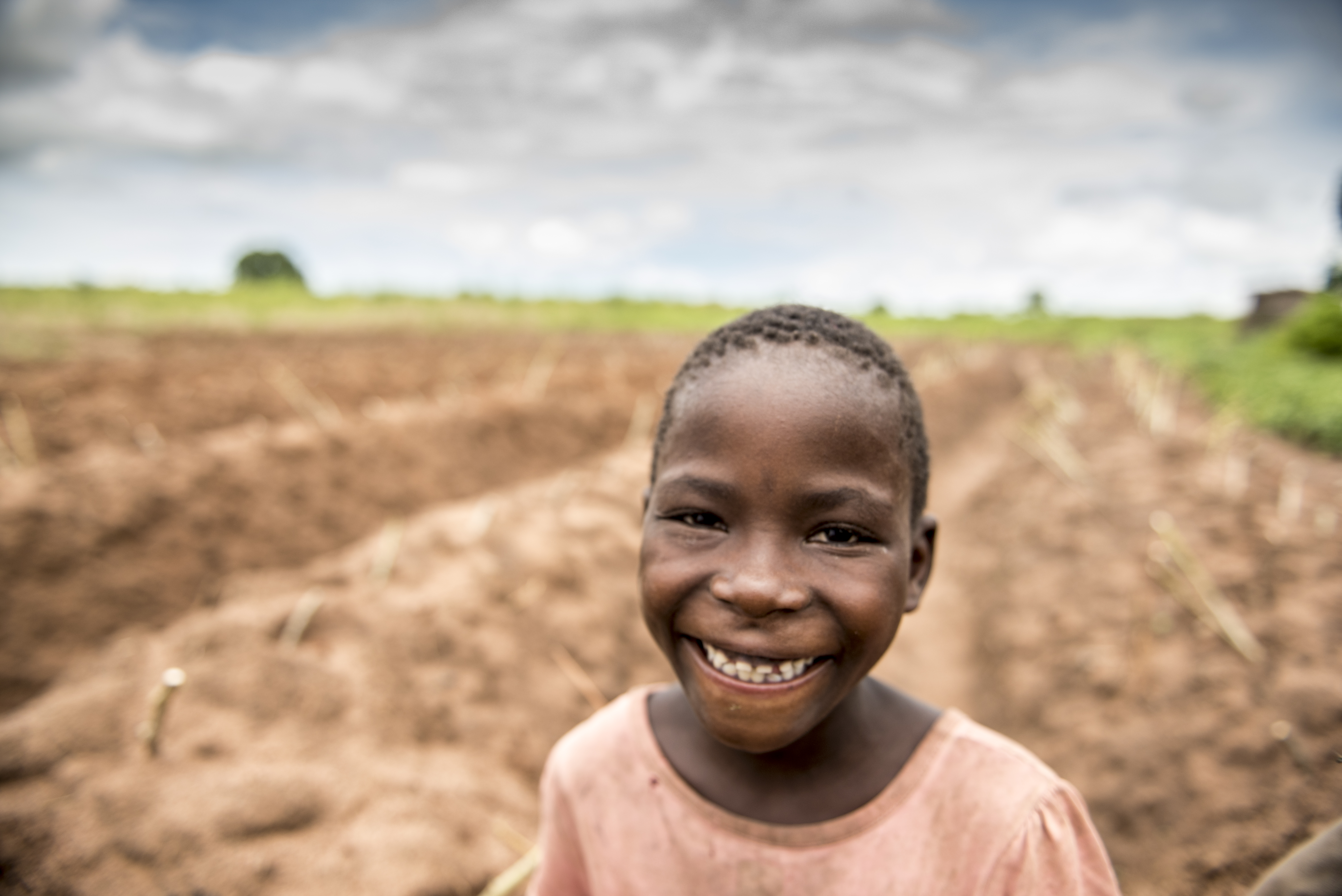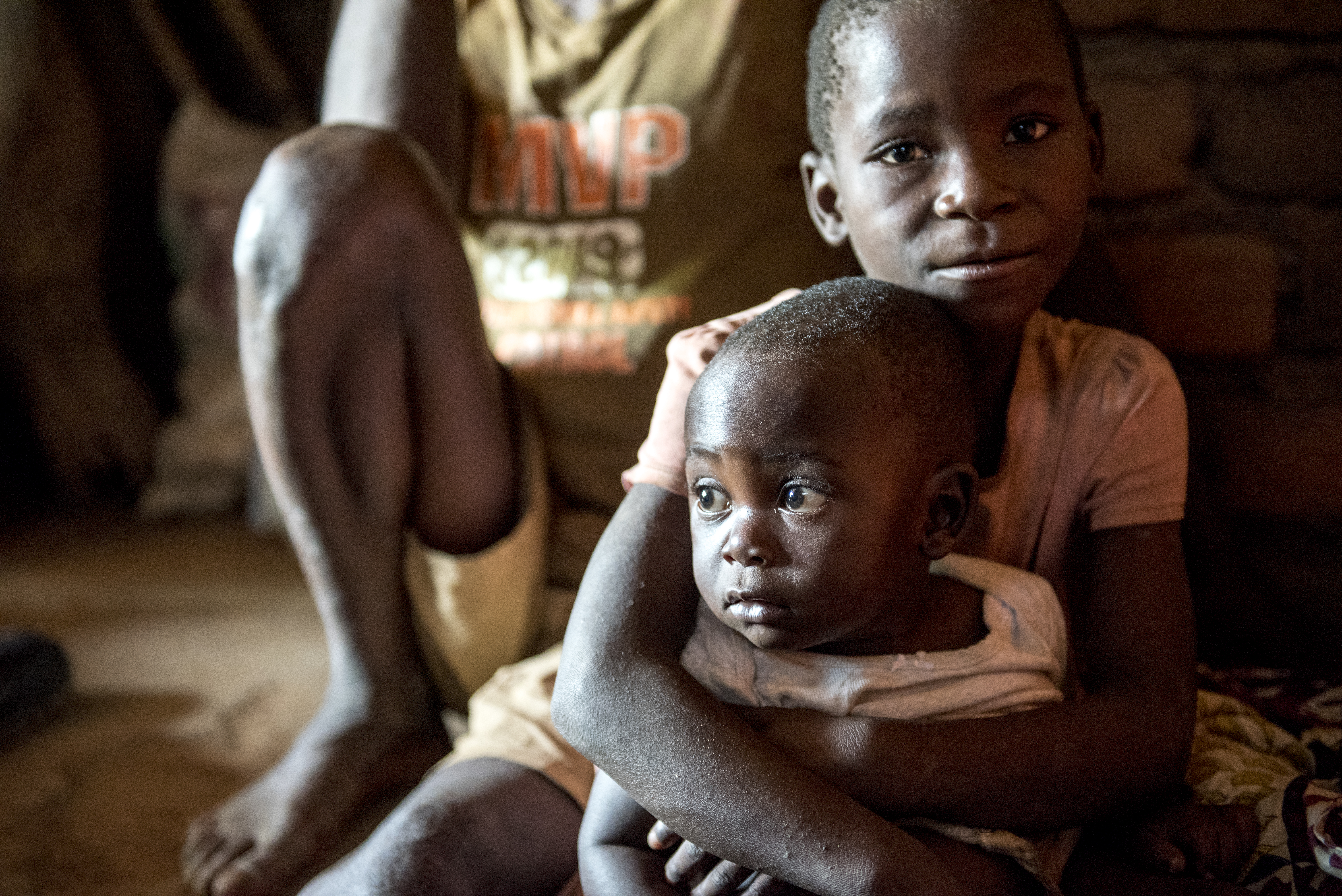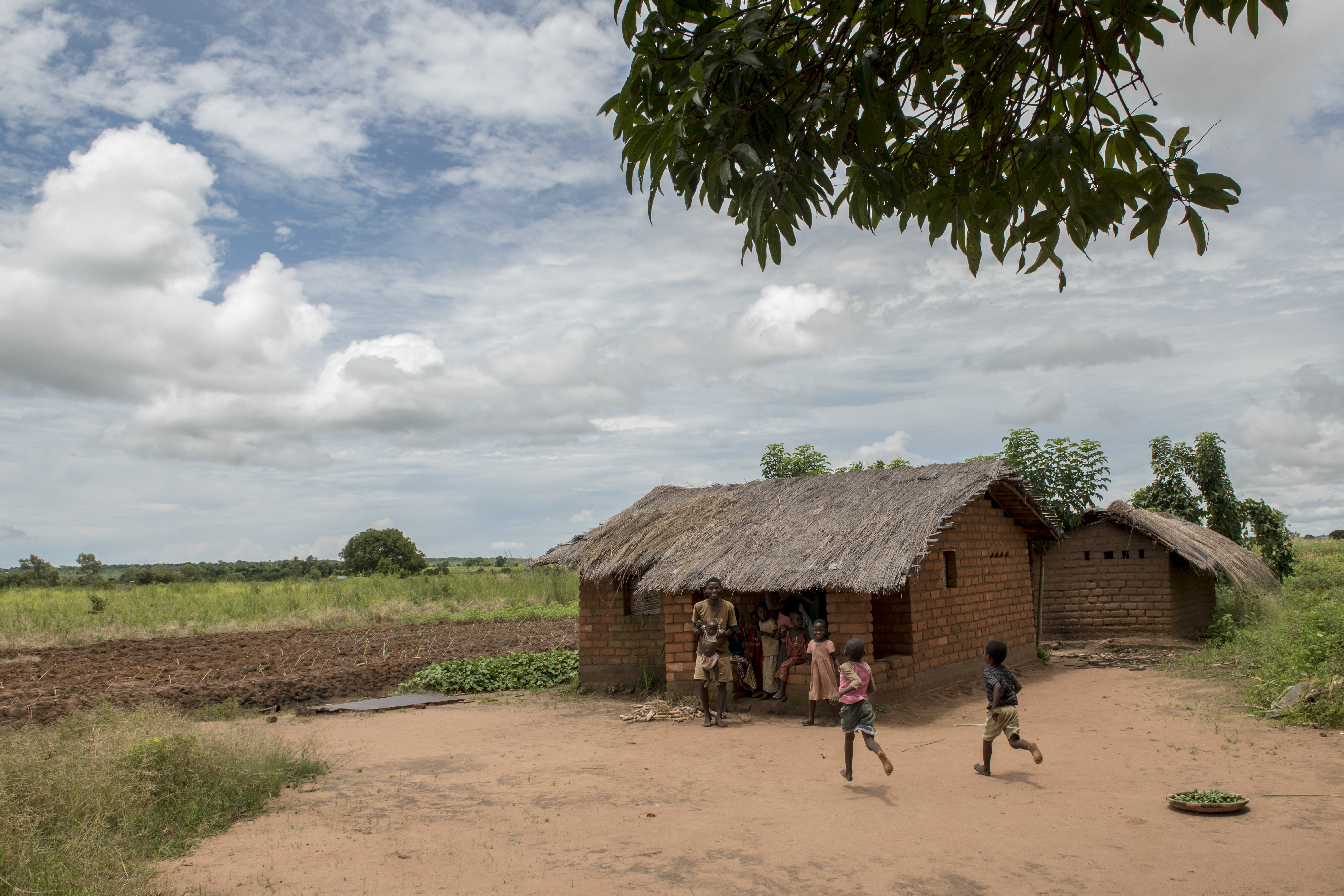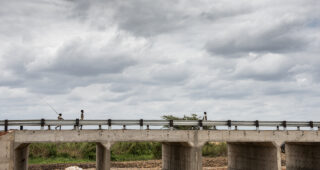Tawonga: Great Thanks in Rural Malawi
Tawonga is an 8-year-old girl living in central Malawi. She loves running fast through the rows of her family’s cassava field. She loves learning how to write at her local school. And she loves pretending that she is a mother, wrapping her 9-month-old brother Abraham onto her back with a colorful chitenge. A chitenge is the printed cloth that serves many purposes for a Malawian woman—in this case for carrying a child hands-free.
Tawonga’s parents, Chadewa and Anifa, beam with pride as they talk about their active and happy daughter. They remember when she was an infant and became so thin and sick that they were afraid that she would die. They took her to the district hospital where she was tested for HIV, along with both parents. All tested positive.

While Chadewa and Anifa were shocked to learn that they were living with HIV, their fears quickly turned to relief when they learned that antiretroviral medication could save Tawonga’s life. Taking medication together is now part of the household routine.
“When they forget to take their medicine, I remind them,” says Tawonga, whose name means great thanks.

Chadewa and Anifa are open and relaxed about their HIV status. Chadewa is the leader of a support group that meets every Friday under the umbrella tree next to his home. He has been trained to be a peer educator by Foundation for Community and Capacity Development (FOCCAD) a community-based organization supported by the Elizabeth Glaser Pediatric AIDS Foundation (EGPAF). Chadewa conducts outreach at the boma (town center) and at his mosque—encouraging other HIV-positive men to join the fellowship. “I tell them, ‘it is not good to seclude yourself. You need to come to the group.’”
Chadewa knows that men, especially, have a tendency to isolate themselves and refuse help. “It took me one year to join the support group after I was diagnosed with HIV,” he says. “But I was visited by FOCCAD, and they told me about the benefits of meeting with other people living with HIV, and I did join.

“I’m very strong. I’m a farmer, so I do things that take strength. I have good children. You cannot tell by looking at me that I am HIV-positive. This is because of the knowledge I gained from the support group. In addition, we encourage one another to disclose our HIV status to our partners and ask them to get tested. We encourage our peers to go to the hospital with their wives when they are expectant.”
Along with training peer educators and establishing support groups, FOCCAD provides door-to-door testing and counseling in the villages that it serves. The grassroots organization also provides crucial items to pregnant women, free of charge: a basin, plastic sheets, a chitenge, and transportation money. The district hospital will not deliver a baby if the mother has not brought plastic sheets, and she will be forced to return home and deliver there without a health worker.
Anifa says that because of FOCCAD’s support she adhered to prevention of mother-to-child HIV transmission (PMTCT) protocols during her pregnancy with Abraham and is continuing to adhere to treatment throughout the breastfeeding period. FOCCAD’s support made it easier to give birth to Abraham at the district hospital—so he was able to start life connected to HIV services. Abraham was tested for HIV at 2 months, with a negative result. He was tested again at 5 months, and they are awaiting those results, praying that he is HIV-free. He will continue to be tested until he is 18-months-old.

Once a month, the entire family walks to the boma eight kilometers away, to pick up antiretroviral medicine at the health center. Tawonga and Abraham are seen by a nurse at that time, who monitors their health and measures their growth. For an 8-year-old girl, the monthly trek is arduous. “My legs get so tired!” exclaims Tawonga. But she is treated to a bowl of nutritious porridge at the health center, which provides her with incentive for the many steps.
Malawi has one of the highest rates of HIV prevalence in the world at more than 10 percent. Nearly 1 million children in this tiny southern African nation have lost one or both parents to AIDS-related disease. But this situation is changing rapidly. The number of HIV-positive people on treatment is rising and AIDS-related deaths are dropping. In the past five years, new HIV infections among children has dropped by nearly three-quarters.
Accessing HIV services can be challenging for a low-income farm family living in rural Malawi. But with the support of organizations like FOCCAD, children like Tawonga are able to race between the rows of cassava, learn how to write, and help their parents raise a baby brother.

Team EGPAF
Malawi
General



